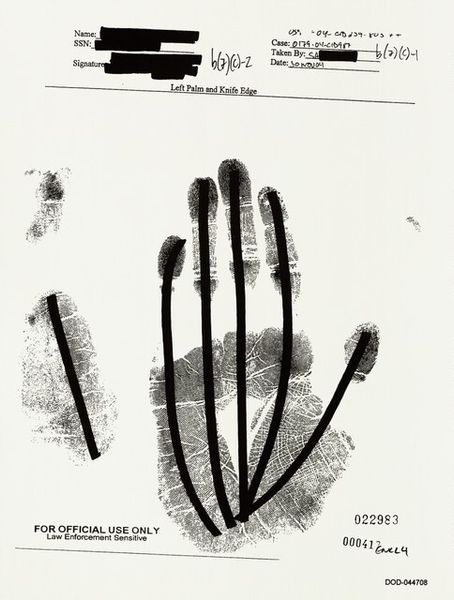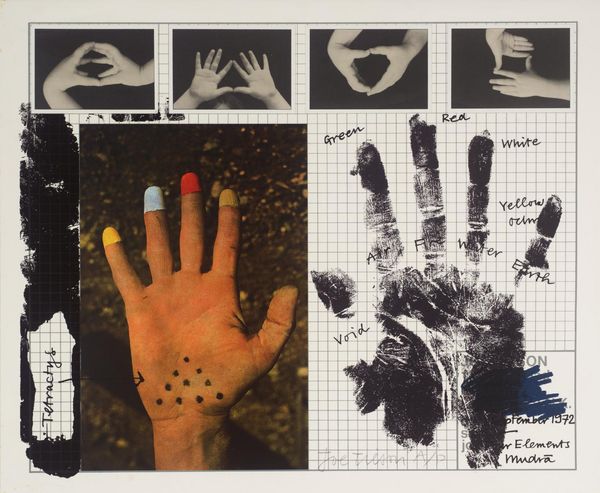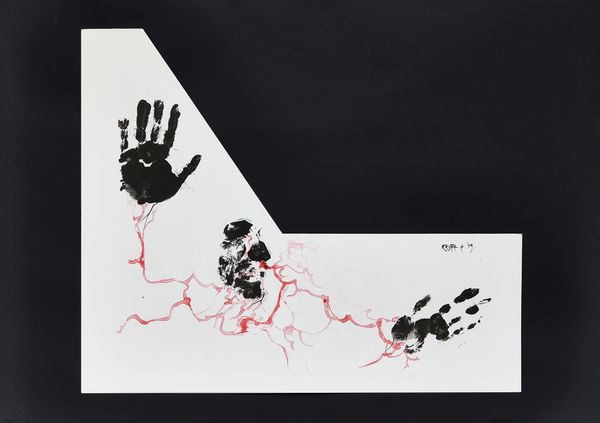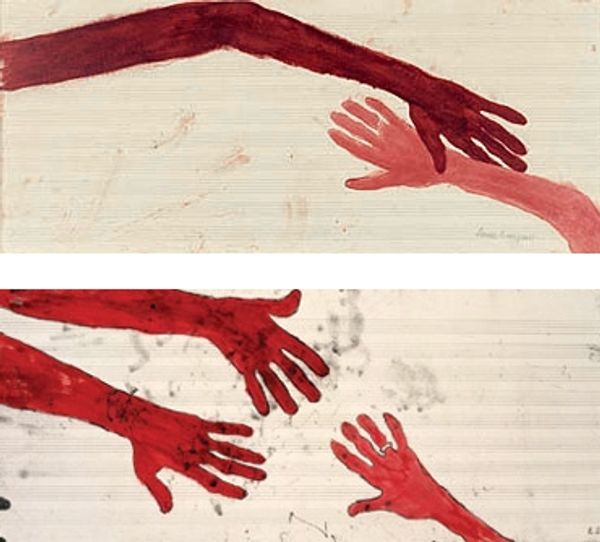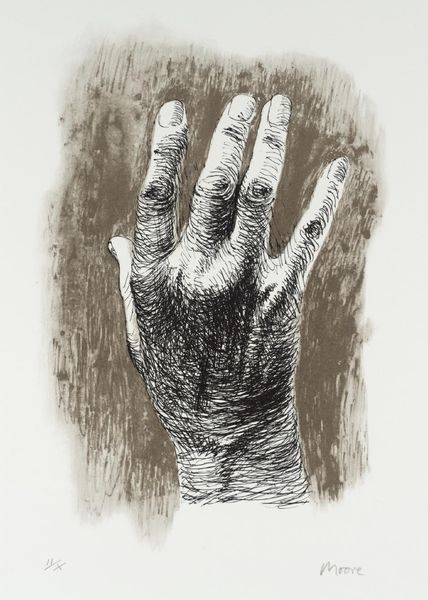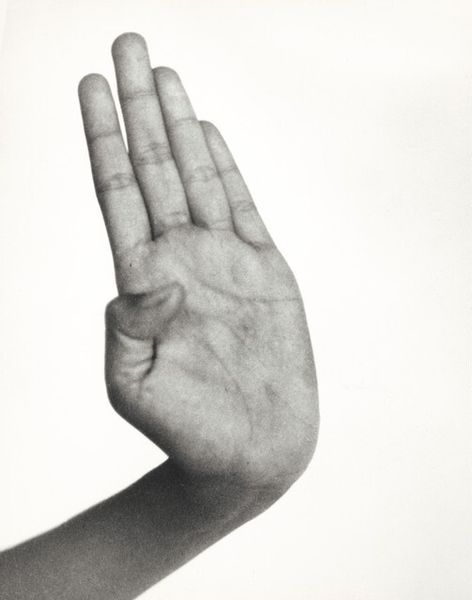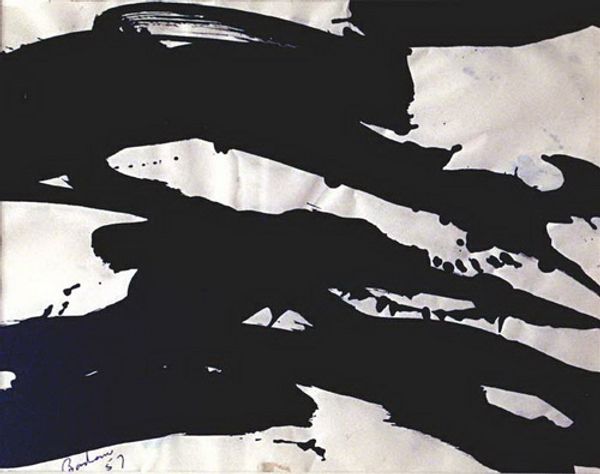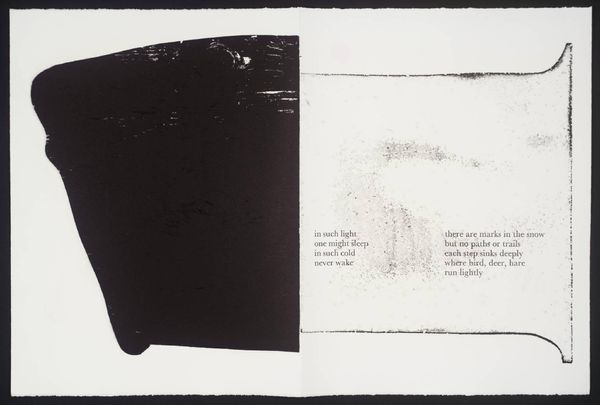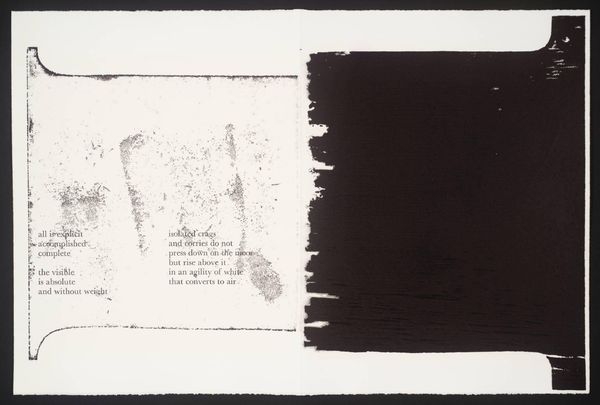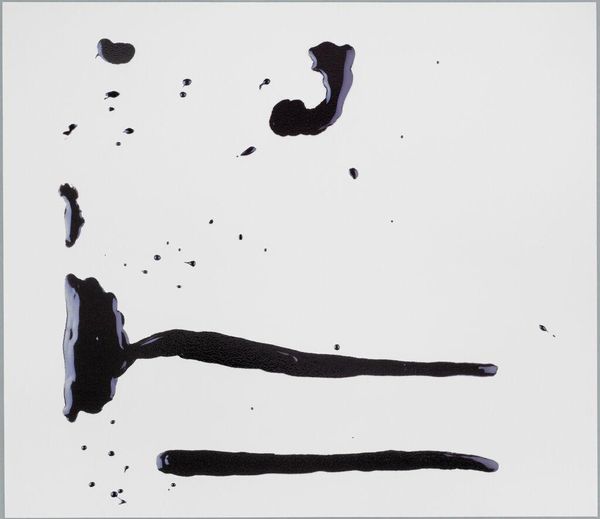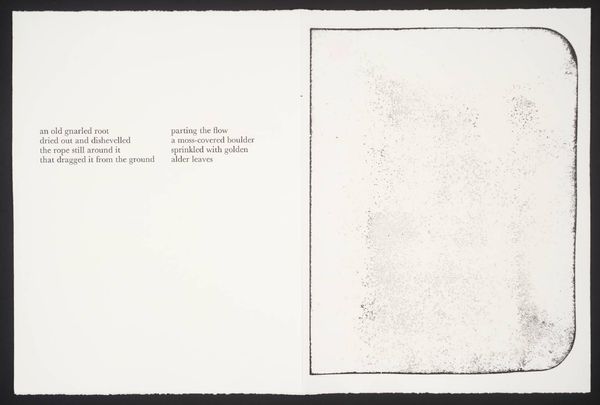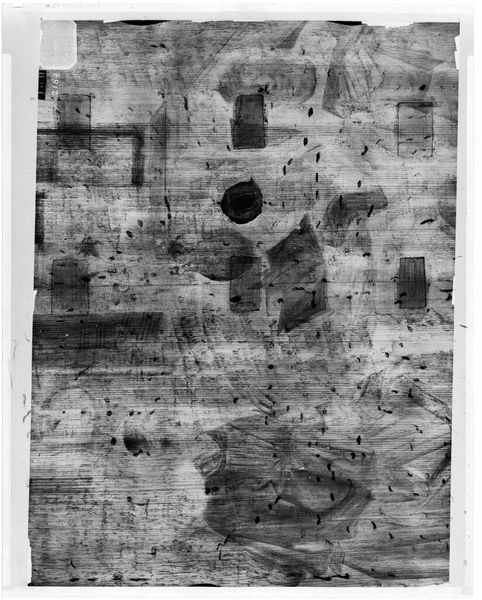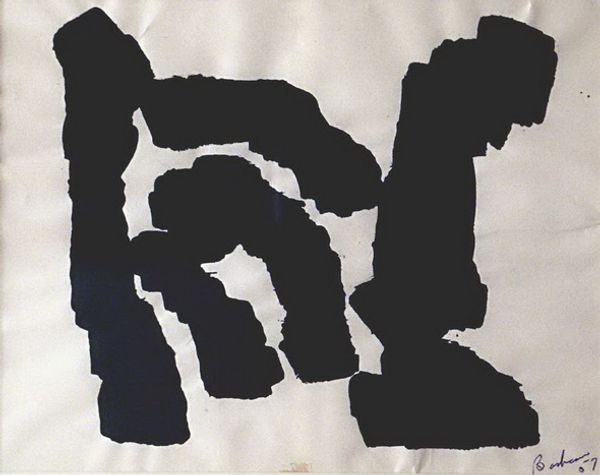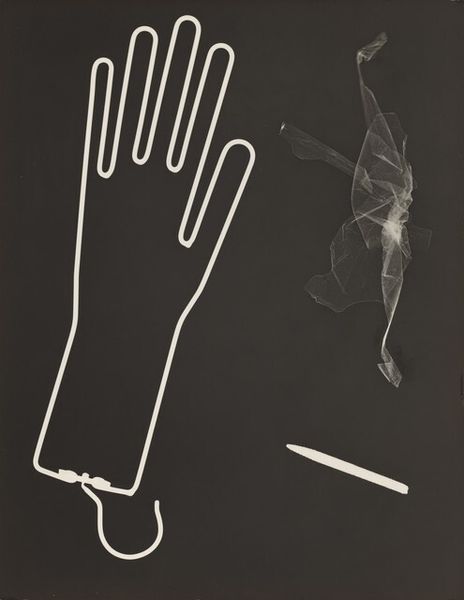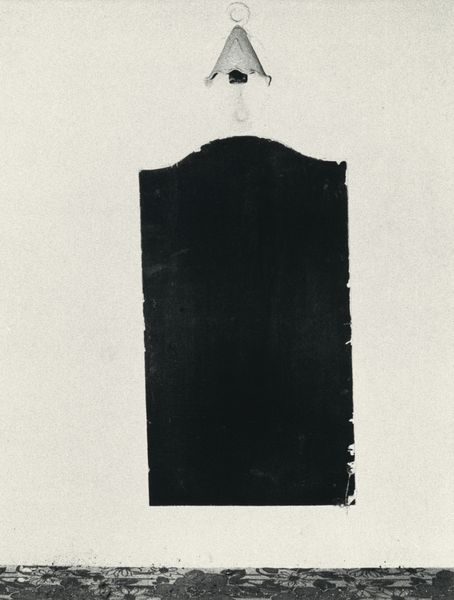
Dimensions: overall: 147.32 x 111.76 cm (58 x 44 in.)
Copyright: National Gallery of Art: CC0 1.0
Curator: Jenny Holzer's "DODDOACID," created in 2007, presents an intriguing piece crafted as a print. What are your initial thoughts on it? Editor: My immediate reaction is one of stark unease. The monochrome palette, the obstructed information... it feels like a redacted truth, a denial of access to something critical. The single, bold handprint is ominous, almost accusing. Curator: That's a very astute interpretation. Holzer often appropriates existing documents to make larger points about power, secrecy, and the role of language. The redacted fields, the fingerprint taken from official records, serve as a chilling commentary on governmental control and surveillance. Editor: Exactly. The use of the found document form inherently evokes questions about institutional authority and the potential for abuse. How the simple act of documenting can strip individuals of their agency. Curator: This is quintessential Holzer. While some might consider it simply “pop art,” her work transcends that. She isn't merely replicating images; she's actively interrogating systems of power. Editor: Definitely. And even technically, the boldness of the single print against the redacted text points to who has control. What details can and cannot be seen. It transforms what is ostensibly data collection into a powerful, aestheticized political statement. Holzer is constantly pushing at the relationship between visual culture and broader systemic inequality. Curator: The choice to print rather than use a digital display connects, too, I think, to historical forms of documenting dissent, from printed leaflets to activist posters. Holzer roots herself in this powerful legacy. Editor: Absolutely, by referencing traditional means, there is a sense of urgency and tangibility. “DODDOACID” forces us to confront the unsettling realities embedded in systems we may unconsciously accept. It reveals the fragility of our perceived freedom and highlights that constant critical reflection is the only way to push forward. Curator: Indeed. A compelling piece that resonates deeply. Editor: Absolutely, a reminder to stay critical, informed, and engaged.
Comments
No comments
Be the first to comment and join the conversation on the ultimate creative platform.
